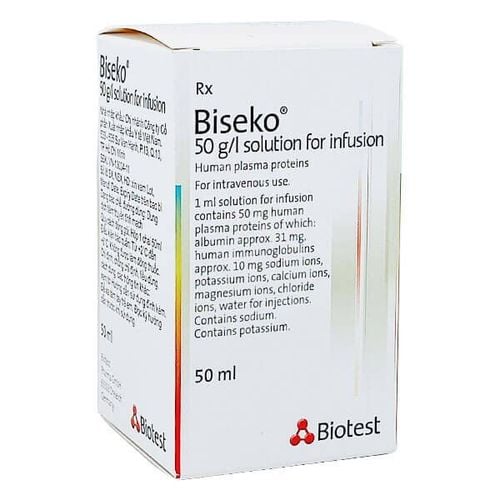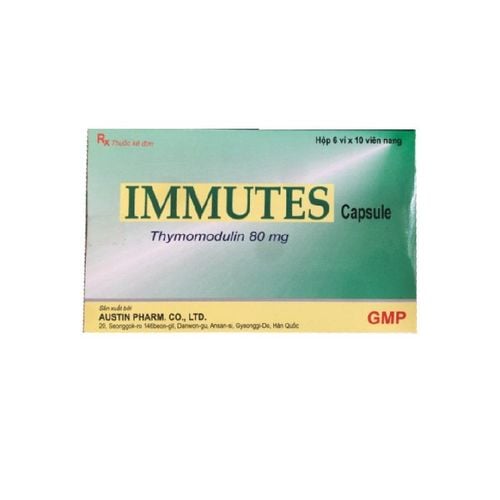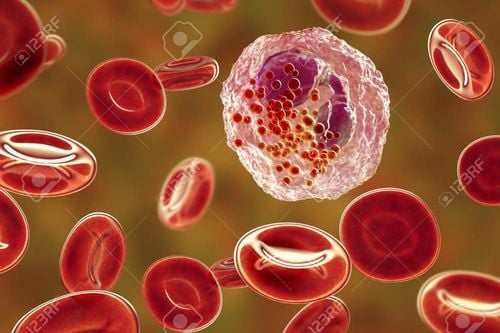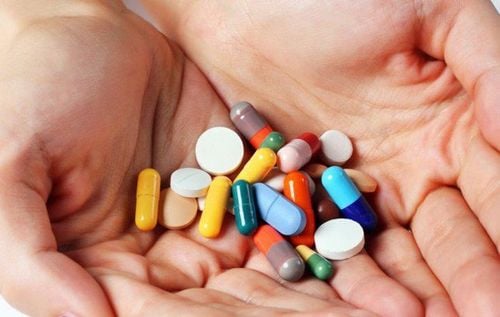This is an automatically translated article.
Cancer is a dangerous disease that is becoming more and more common. Cancer patients are very susceptible to infections due to a weakened immune system. So who is at high risk of infection with cancer and why is this a question that many people care about.
1. What is an infection?
Infection occurs when pathogenic microorganisms enter the body and the body does not have enough immune response to destroy them. These pathogens can be bacteria, viruses or yeasts. Infection occurs when the body is immunocompromised.
Cancer and cancer treatment both weaken the immune system. Therefore, patients are more susceptible to infections when they have cancer.
2. What is the immune system?
The immune system is a protective barrier, taking on the role of helping the body fight off infection by pathogenic microorganisms. The immune system includes: Skin, spleen, lymph nodes, bone marrow, white blood cells (helps the body fight infection and destroy the infection of harmful factors into the body).
In addition, the immune system is also an antibody that works against invading agents in the body. When the body's immune system is weakened, it is easy to get infections.
Trắc nghiệm: Thử hiểu biết của bạn về bệnh ung thư
Ung thư là nguyên nhân gây tử vong hàng thứ 2 trên thế giới. Thử sức cùng bài trắc nghiệm sau đây sẽ giúp bạn có thêm kiến thức về yếu tố nguy cơ cũng như cách phòng ngừa bệnh ung thư.
Bài dịch từ: webmd.com
3. Decreased granulocyte count
White blood cells have a very important protective role in the body. There are many types of white blood cells in the body, such as polymorphonuclear leukocytes and monocytes. Within each of these groups are further subdivided into different categories. In which, neutrophils make up the majority and play an important role in fighting infection. When the number of granulocytes in the blood decreases, ie immunocompromised, the patient's risk of infection is very high.
In cancer patients, more than 50% of patients being treated have agranulocytosis. In particular, this is also a common condition in blood cancers. Therefore, patients with cancer are very susceptible to infections.
Clinical symptoms of patients with agranulocytosis: Patients with agranulocytosis may have symptoms of fatigue. However, there are also cases where the patient does not have any symptoms. Patients are often diagnosed with the disease during routine physical examination or when there is an infection. Therefore, people need to have regular health check-ups and blood tests to assess the condition of the body.

In patients with agranulocytosis, even a mild infection requires caution. Because the disease is very easy to become serious, dangerous to life. Signs of infection include:
Fever: when body temperature is 38 degrees Celsius or higher or 37.5 degrees Celsius if measured in armpits Chills or sweats Sore throat, mouth ulcers, or toothaches Abdominal pain, pain near the anus and diarrhea Pain or burning symptoms when urinating or urinating frequently Cough, difficulty breathing, or rapid breathing Symptoms of swelling, redness, pain around the wound Unusual vaginal discharge or vaginal itching . Infection is a common, treatable disease. However, if not treated promptly and thoroughly, they can become serious and life-threatening. Therefore, it is important to notify your doctor immediately if any signs of infection appear.
Causes of agranulocytosis Cancer patients are being treated with chemotherapy. Cancers related to blood and bone marrow such as blood cancer, lymphoma, multiple myeloma. Bone metastases cancer. ..
Cancer patients at high risk for agranulocytosis are people from over 70 years old who have some diseases that cause immunodeficiency such as: HIV/AIDS, organ transplant...
Treatment to reduce Agranulocytosis: The principle of treatment is to relieve symptoms and side effects. This is an important part of cancer care. This method is called palliative care.
4. Preventing infection for cancer patients
With daily living habits:
It is necessary to avoid or limit going to crowded places. If you really need to go to those places, you should wear a mask to protect yourself. Avoid contact with people who are sick with infections such as colds, fevers, or other infections. Get a flu shot before each pandemic season. Clean the body every day. Brush your teeth with a soft toothbrush to avoid bleeding gums that lead to the risk of infection. Limit the use of nail services at the spa. Do not swim in ponds, lakes, rivers, streams, or bathe in public potions. Do not share razors and other personal items. Wear protective clothing when working. With eating habits: Van is ripe, drink boiling. Do not eat raw vegetables, blood soup, fish salad or uncooked food. With fruits, you need to wash and peel them before eating.

5. Using anti-infective drugs during cancer treatment
Anti-infective drugs: During cancer treatment, the body's immune system can be weakened. Therefore, it is necessary to use antibiotics and antiviral drugs to prevent infection. This measure is called prophylactic antibiotic use. Prophylactic antibiotics are used only when the patient is immunocompromised. In addition, patients may also be given prophylactic antibiotics if they are taking drugs that weaken the immune system, such as corticosteroids or certain chemotherapy drugs.
Patients will stop taking prophylactic drugs when the immune system has stabilized. However, there are many types of pathogenic microorganisms that can enter the body. Therefore, the use of prophylactic antibiotics is not able to prevent all infections.
Therefore, disease prevention by changing living habits still plays an important role.
Drugs that stimulate blood cell growth Drugs that promote the growth of granulocytes help reduce the risk of infection. However, the drug can cause some side effects for the body, so it should be used with caution. Therefore, it is necessary to discuss carefully with your doctor to get the most useful advice.
Thus, all cancer patients are susceptible to infection. This is because they have a weakened immune system especially agranulocytosis in the blood.
Hope the above article has answered the questions of readers about who is susceptible to infection with cancer. Thereby, safe and effective preventive measures can be taken.
Department of Internal Oncology, Center for Oncology - Radiation Therapy, Vinmec International General Hospital is one of the reliable facilities in the treatment and palliative care for cancer patients. With a team of doctors and nurses who are experts with extensive experience in cancer treatment and palliative care, it will help cancer patients' lives become lighter and more meaningful.
Please dial HOTLINE for more information or register for an appointment HERE. Download MyVinmec app to make appointments faster and to manage your bookings easily.













